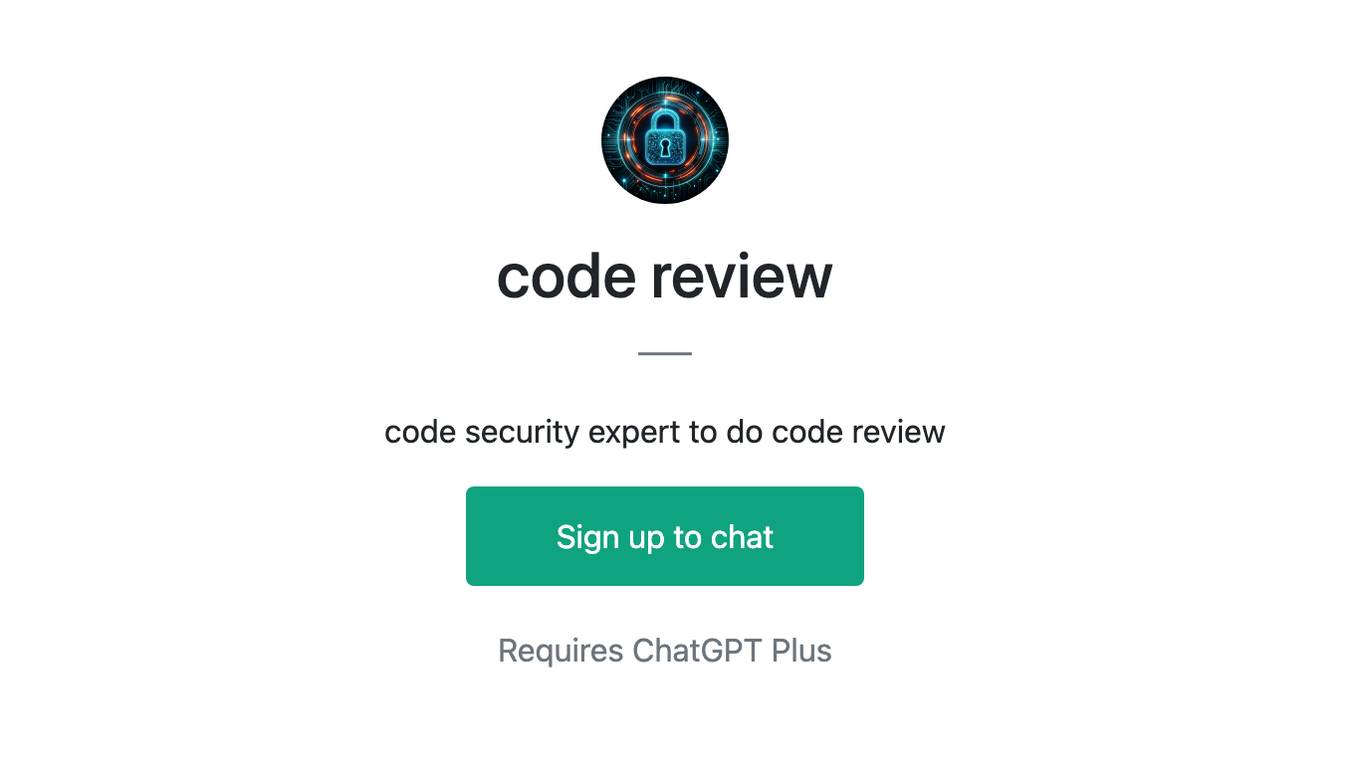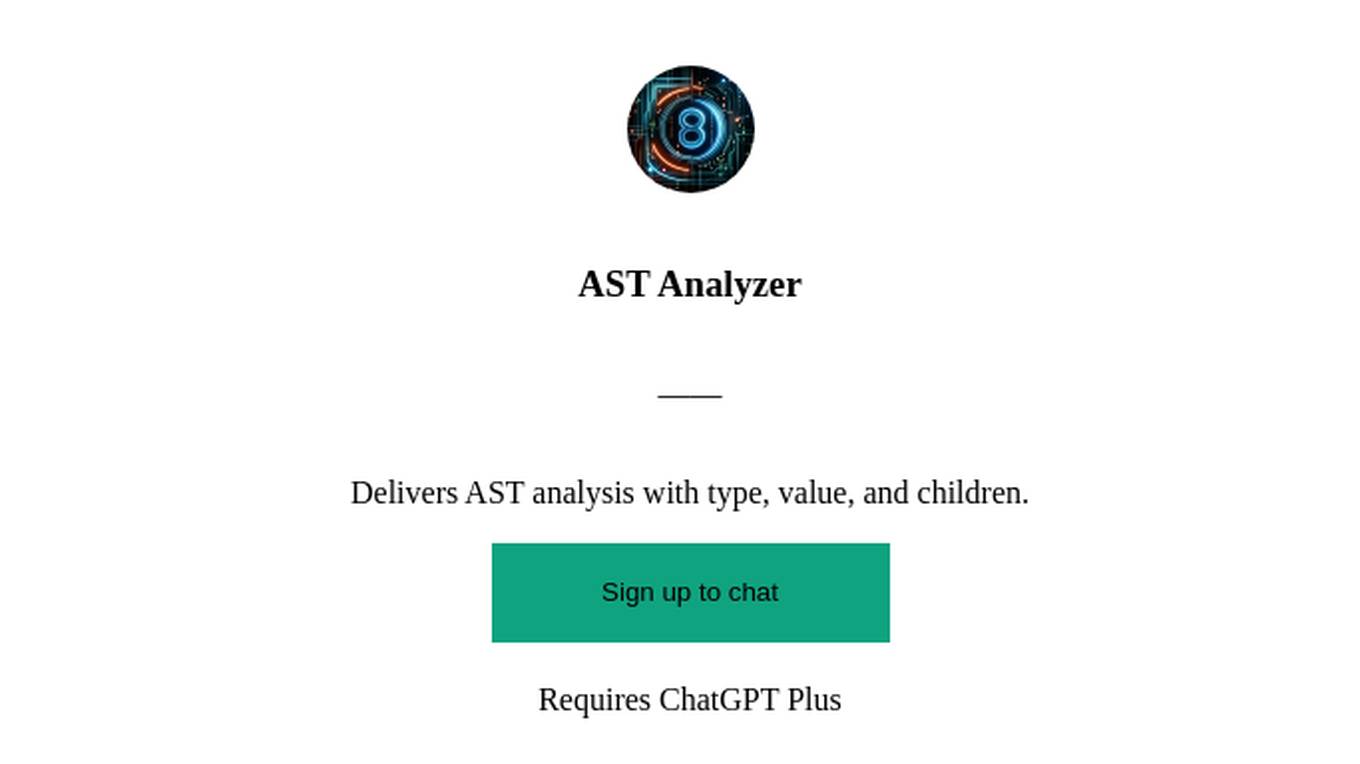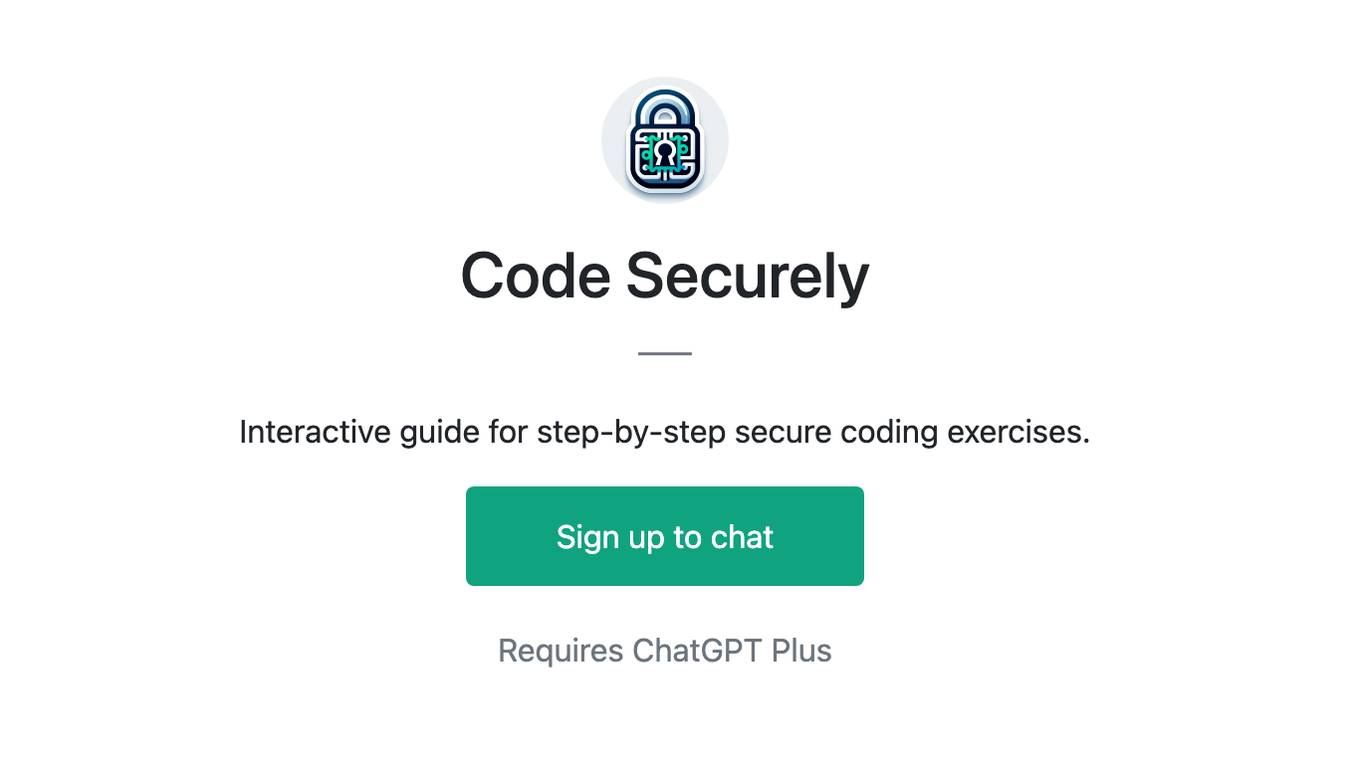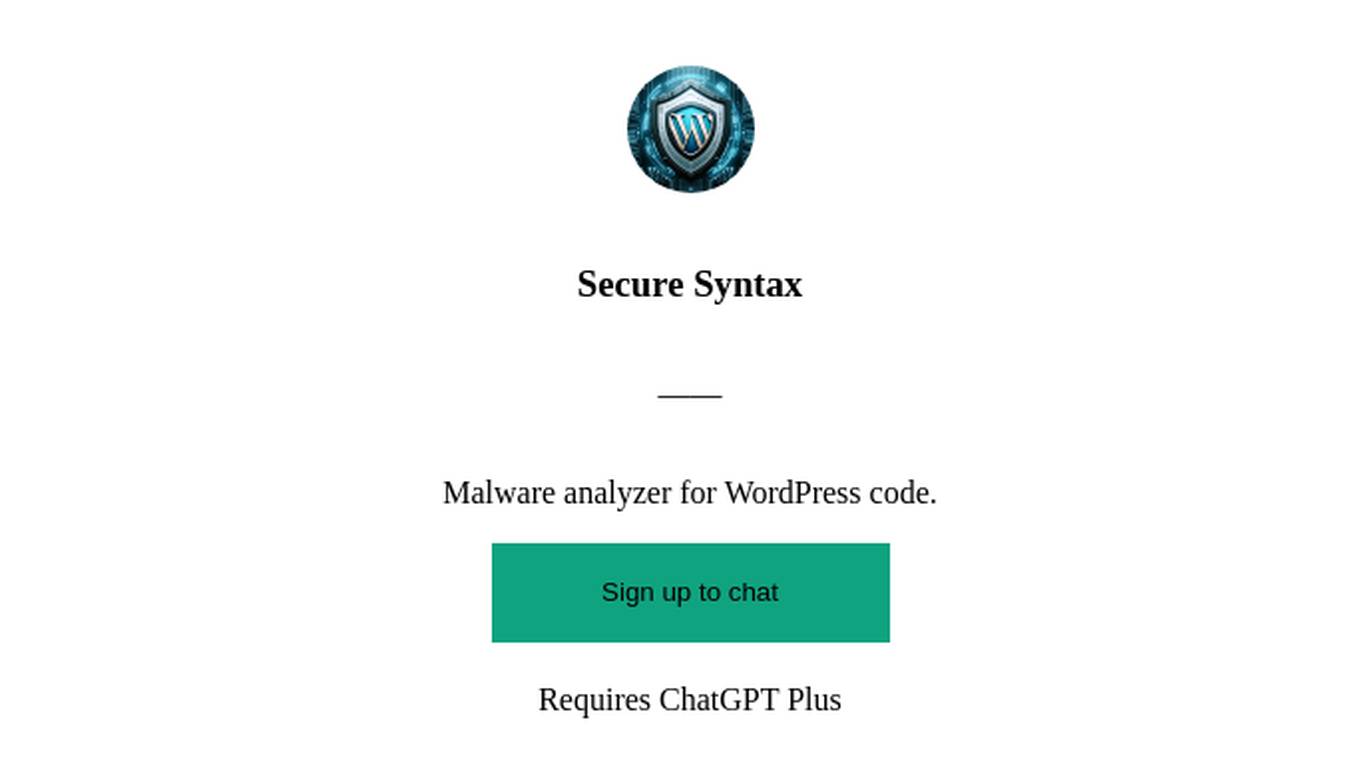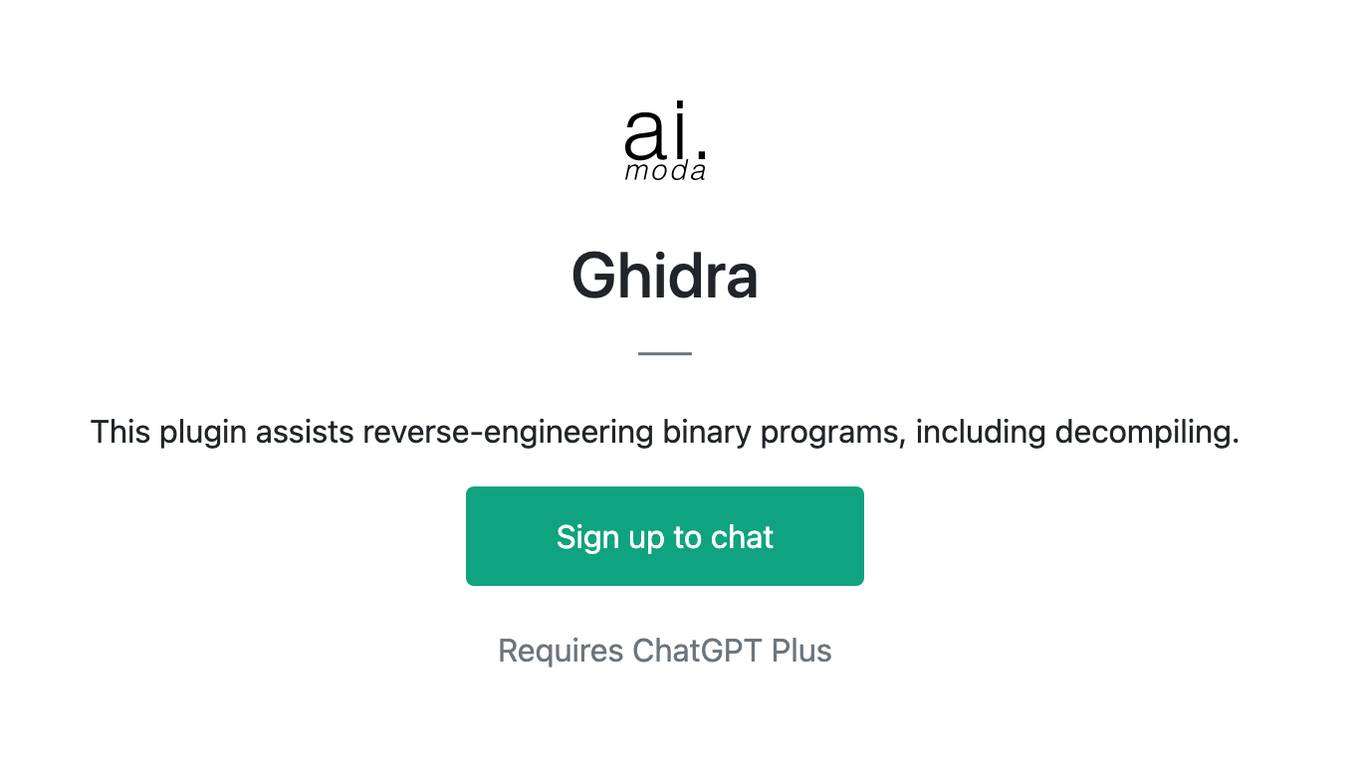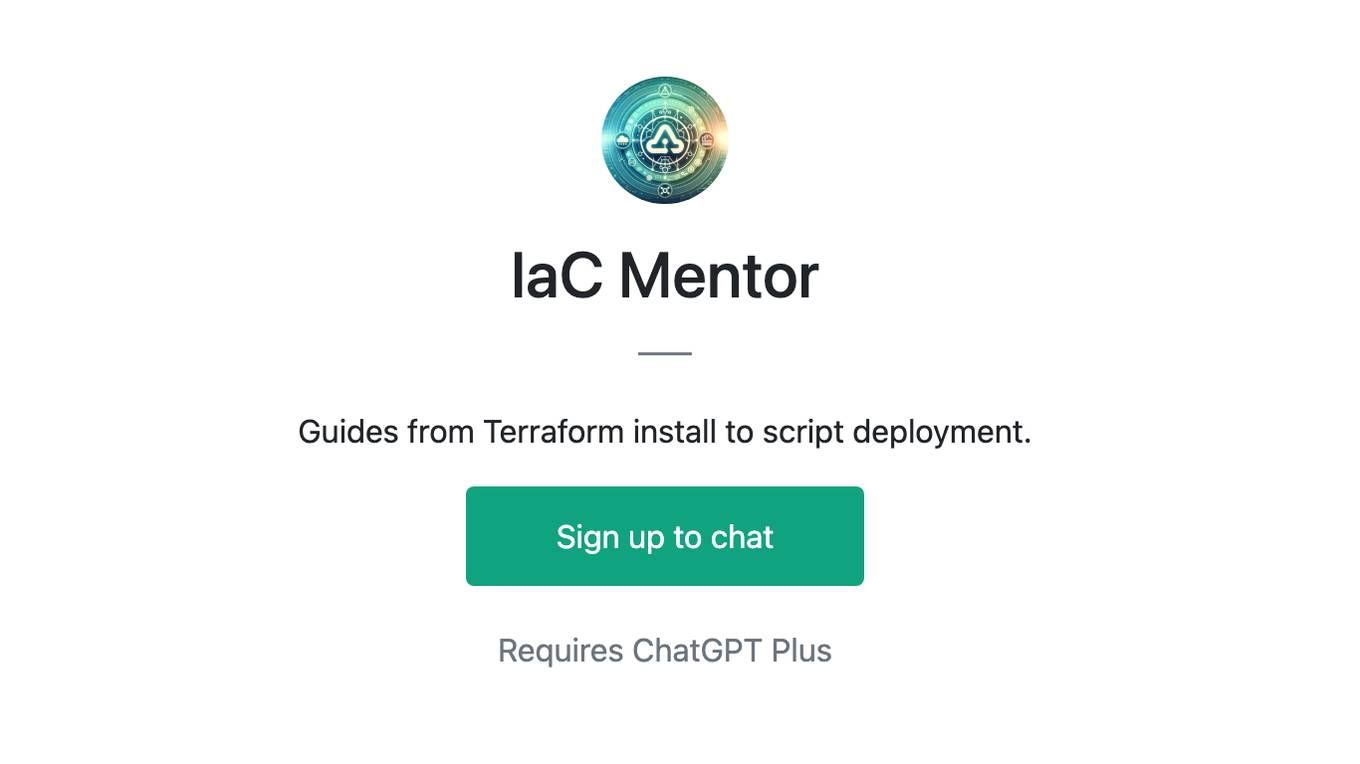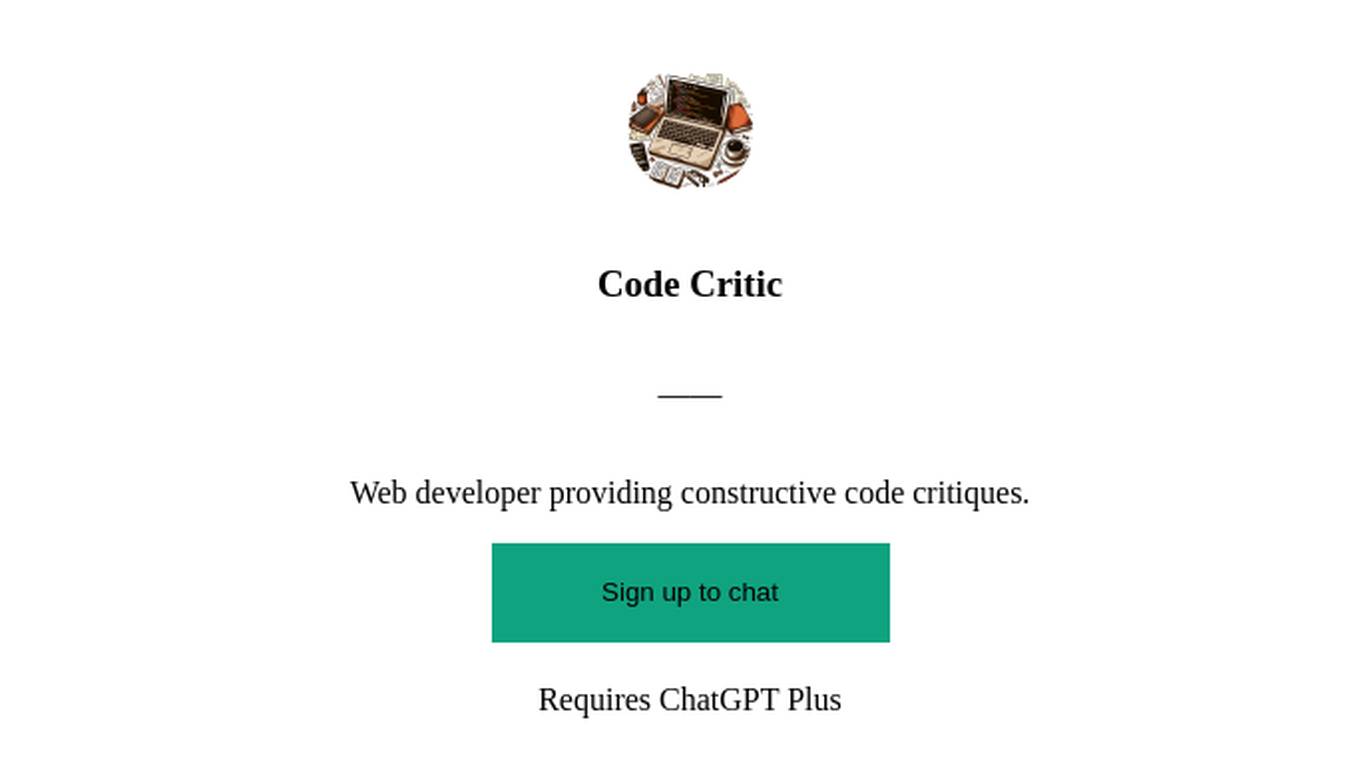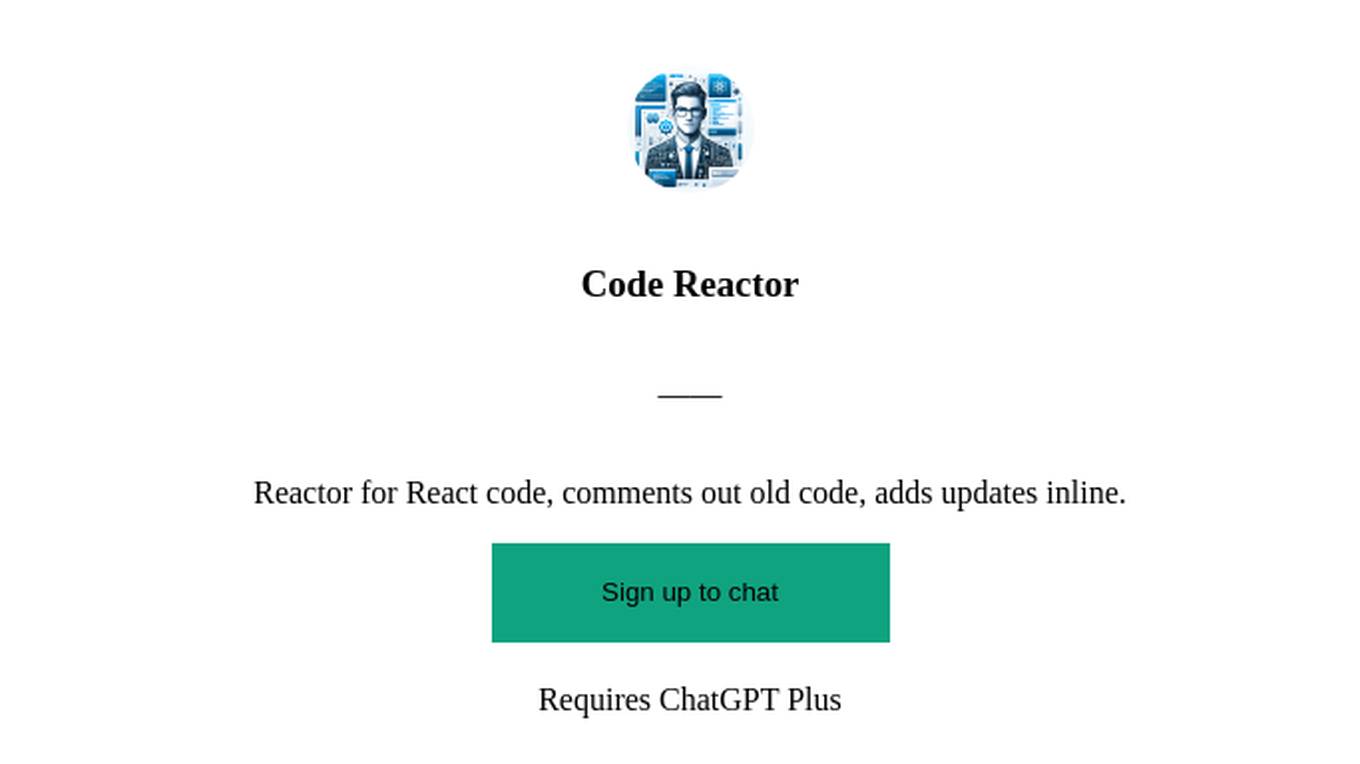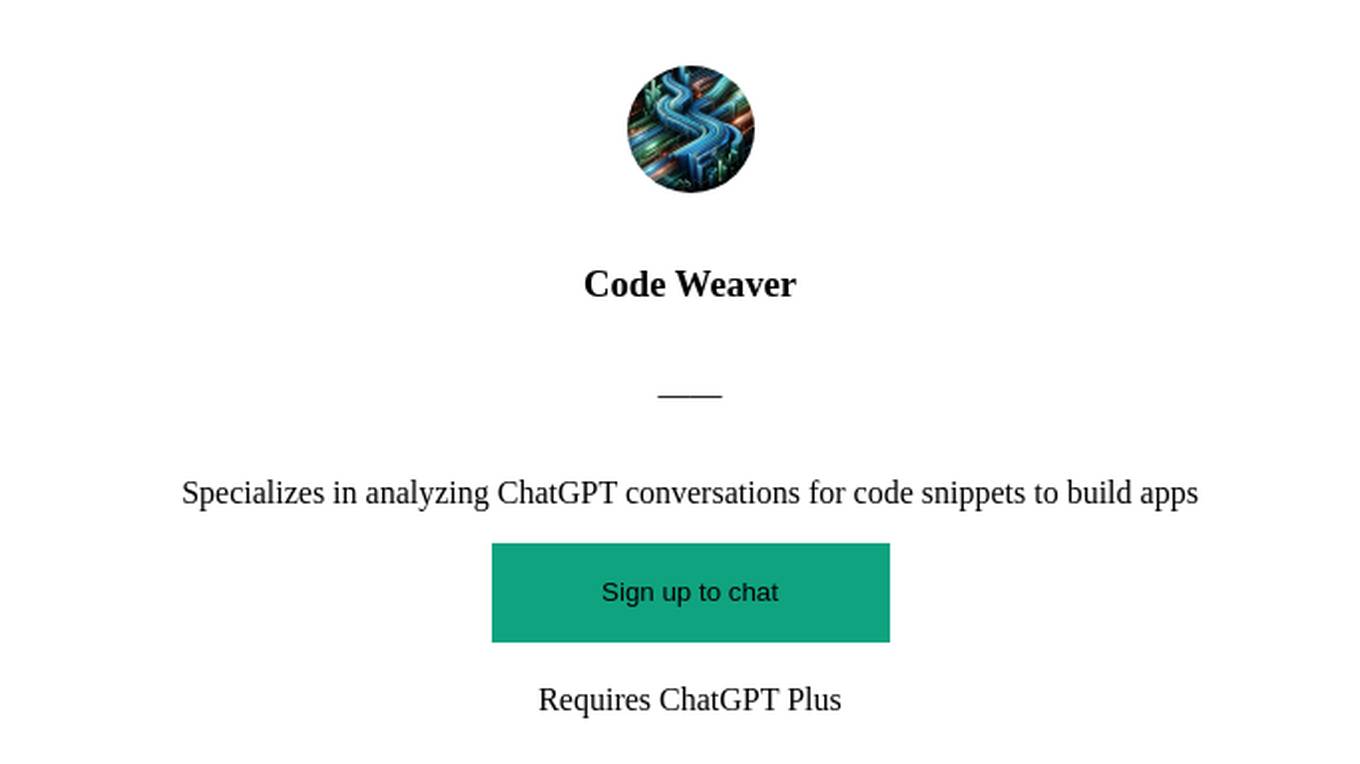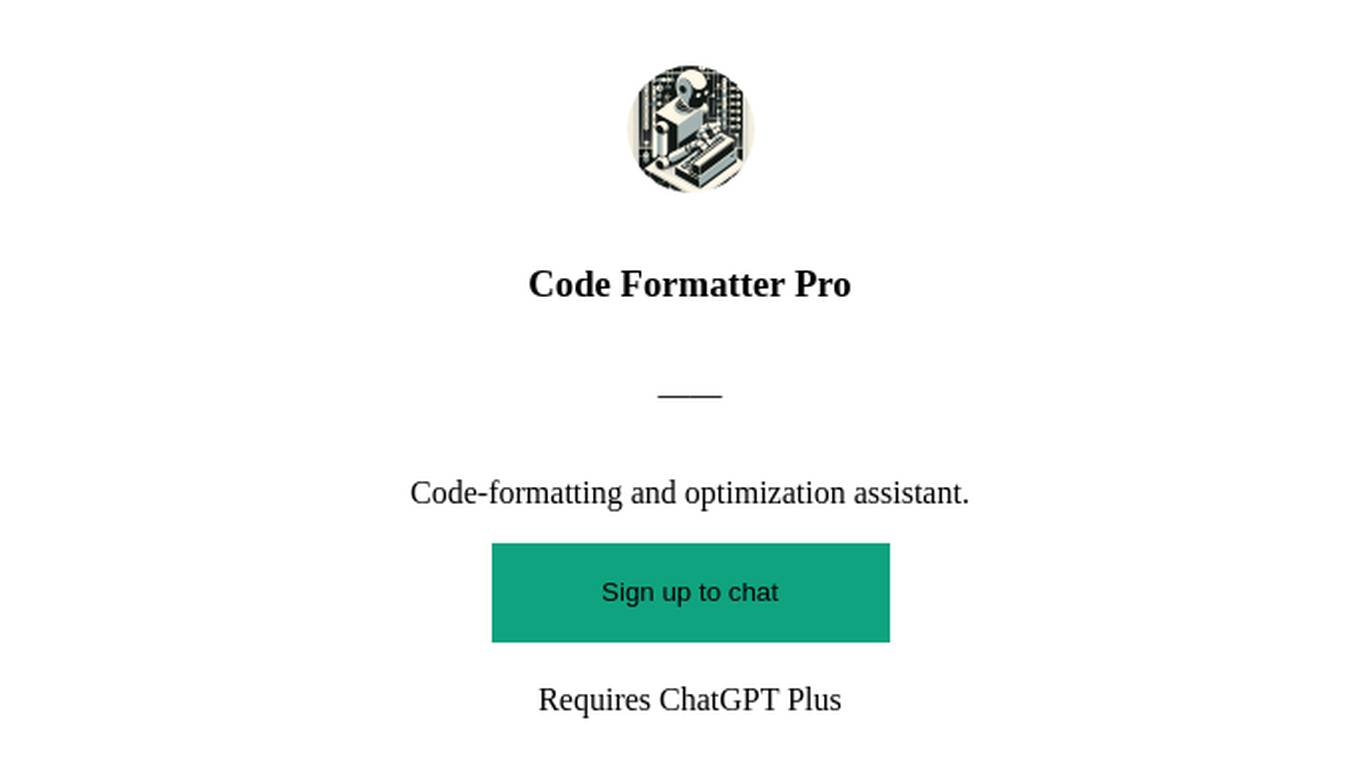Best AI tools for< Improve Code Security >
20 - AI tool Sites

Pixeebot
Pixeebot is an automated product security engineer that helps developers fix vulnerabilities, harden code, squash bugs, and improve code quality. It integrates with your existing workflow and can be used locally via CLI or through the GitHub app. Pixeebot is powered by the open source Codemodder framework, which allows you to build your own custom codemods.
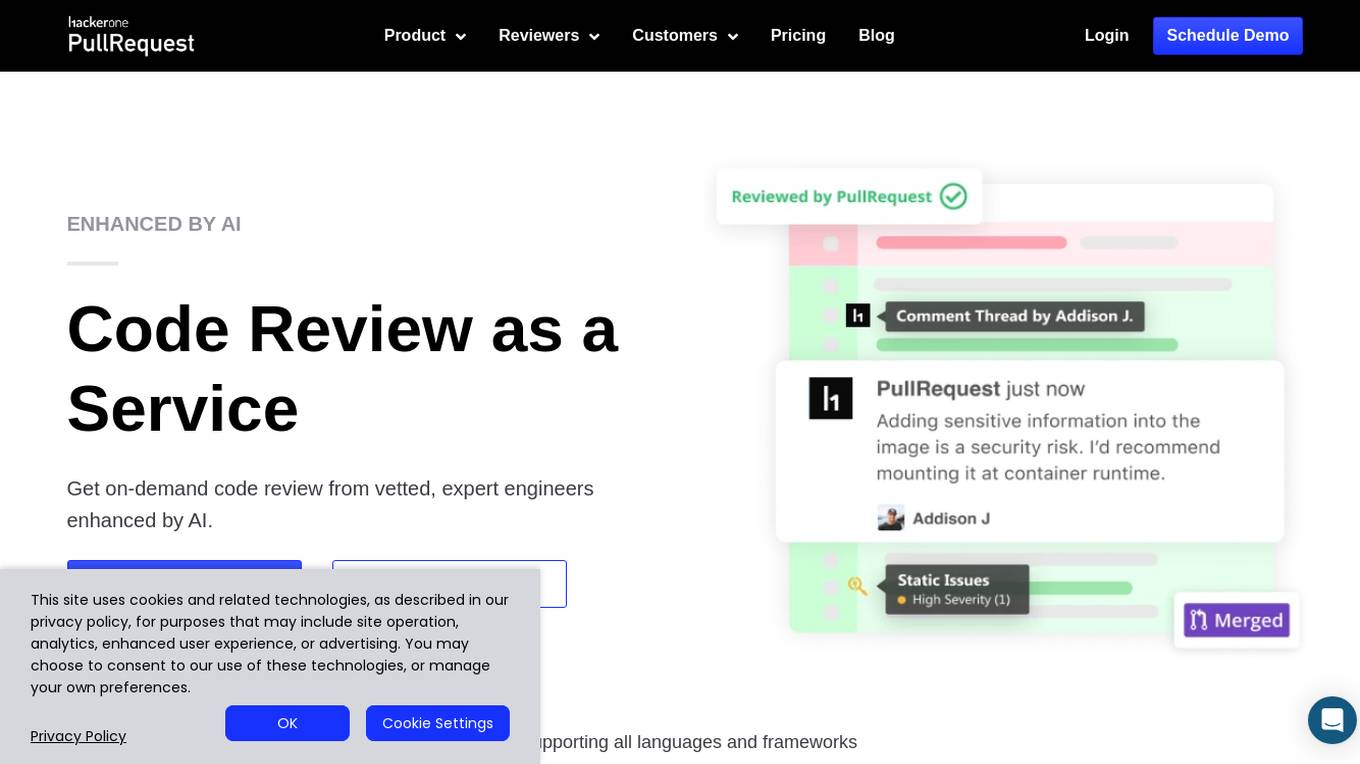
PullRequest
PullRequest is an AI-powered code review as a service platform that offers on-demand code review from expert engineers enhanced by AI. It supports all languages and frameworks, helping development teams of any size ship better, more secure code faster through AI-assisted code reviews. PullRequest integrates with popular version control platforms like GitHub, GitLab, Bitbucket, and Azure DevOps, providing valuable knowledge sharing with senior engineers to improve code quality and security. The platform ensures code safety and security by adhering to best practices, strict procedures, and employing reviewers based in the US, the UK, or Canada.
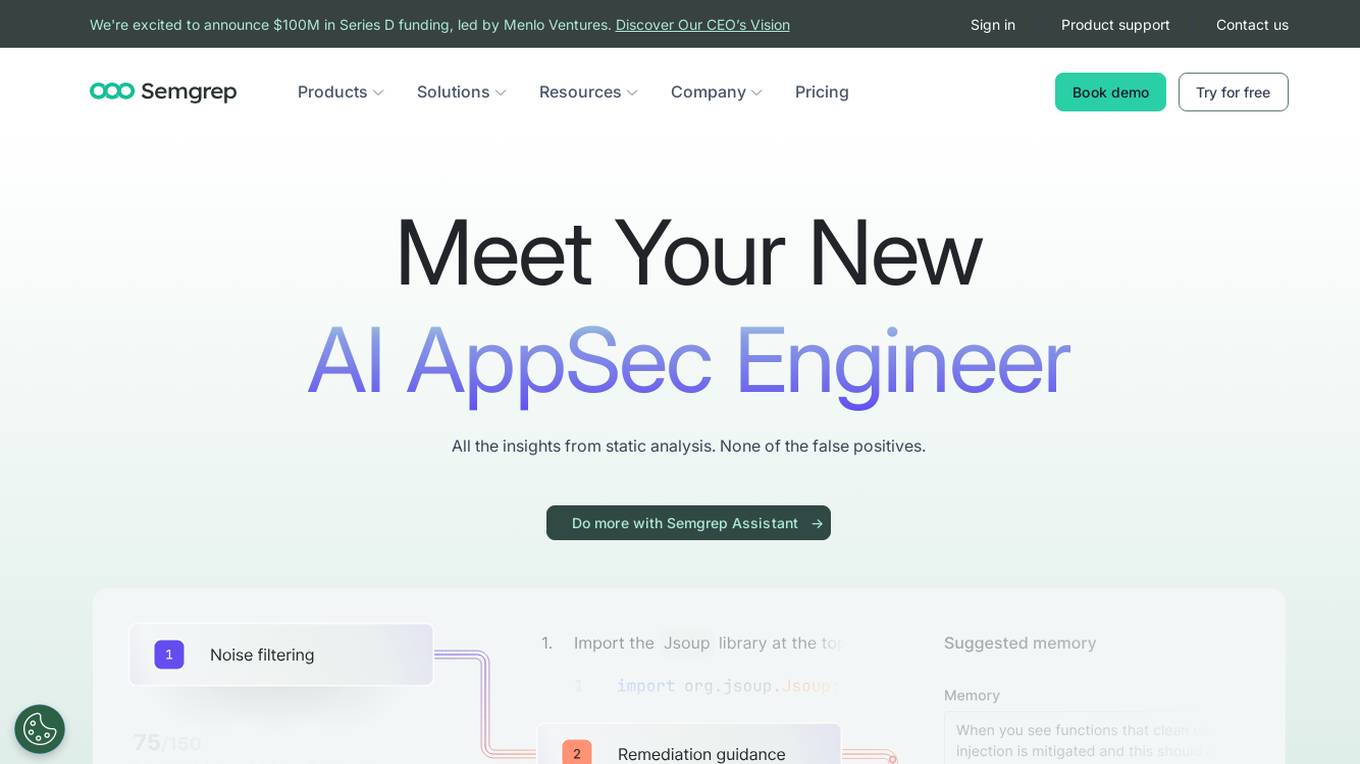
Semgrep
Semgrep is an AI-powered application designed for static analysis and security testing of code. It helps developers find and fix issues in their code, detect vulnerabilities in the software supply chain, and identify hardcoded secrets. Semgrep offers features such as AI-powered noise filtering, dataflow analysis, and tailored remediation guidance. It is known for its speed, transparency, and extensibility, making it a valuable tool for AppSec teams of all sizes.

CodeDefender α
CodeDefender α is an AI-powered tool that helps developers and non-developers improve code quality and security. It integrates with popular IDEs like Visual Studio, VS Code, and IntelliJ, providing real-time code analysis and suggestions. CodeDefender supports multiple programming languages, including C/C++, C#, Java, Python, and Rust. It can detect a wide range of code issues, including security vulnerabilities, performance bottlenecks, and correctness errors. Additionally, CodeDefender offers features like custom prompts, multiple models, and workspace/solution understanding to enhance code comprehension and knowledge sharing within teams.
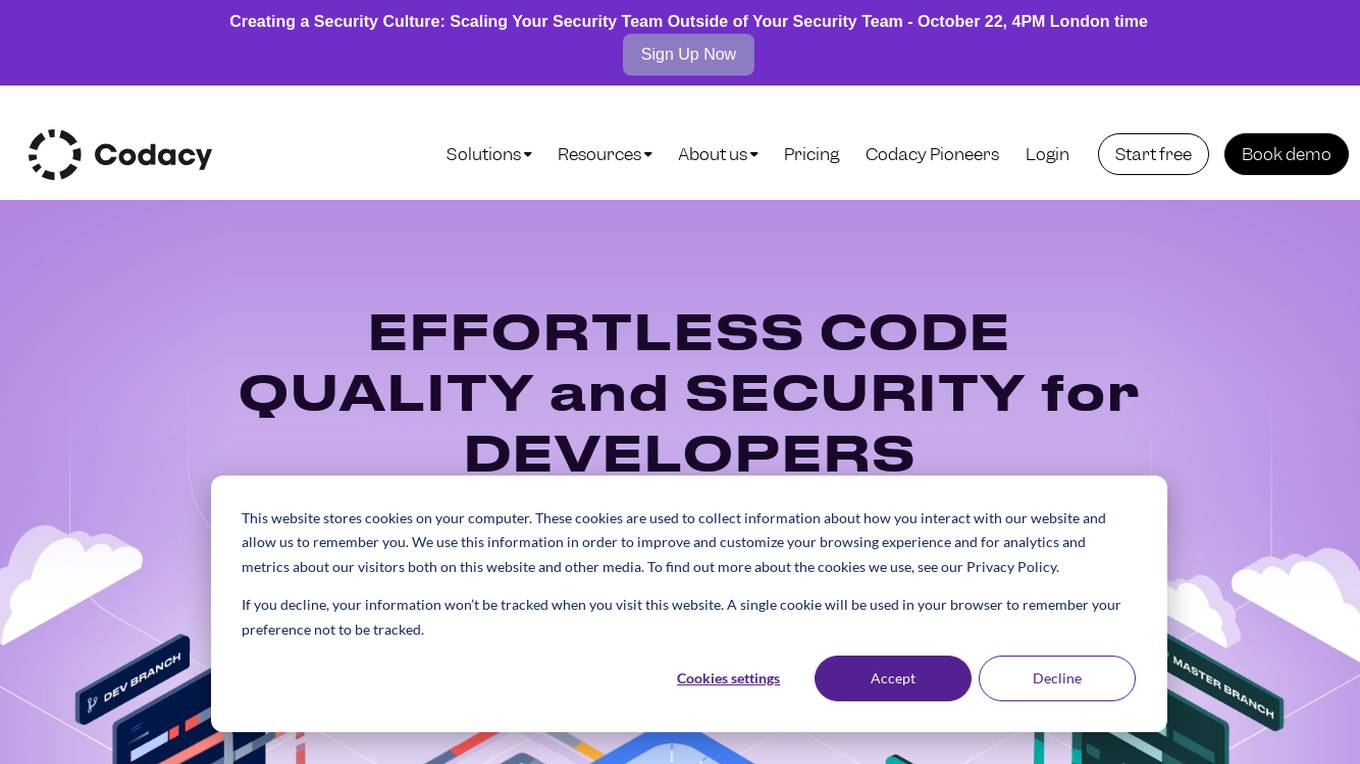
Codacy
Codacy is an AI-powered code quality and security platform designed for developers to efficiently optimize and secure their code. It offers a unified set of AppSec tools, data-driven insights, and seamless integrations across the software development lifecycle. Codacy helps teams monitor and resolve security issues at scale, improve code quality, and prevent breaking changes. With AI suggested fixes and effortless code quality monitoring, Codacy is a valuable tool for businesses and developers alike.
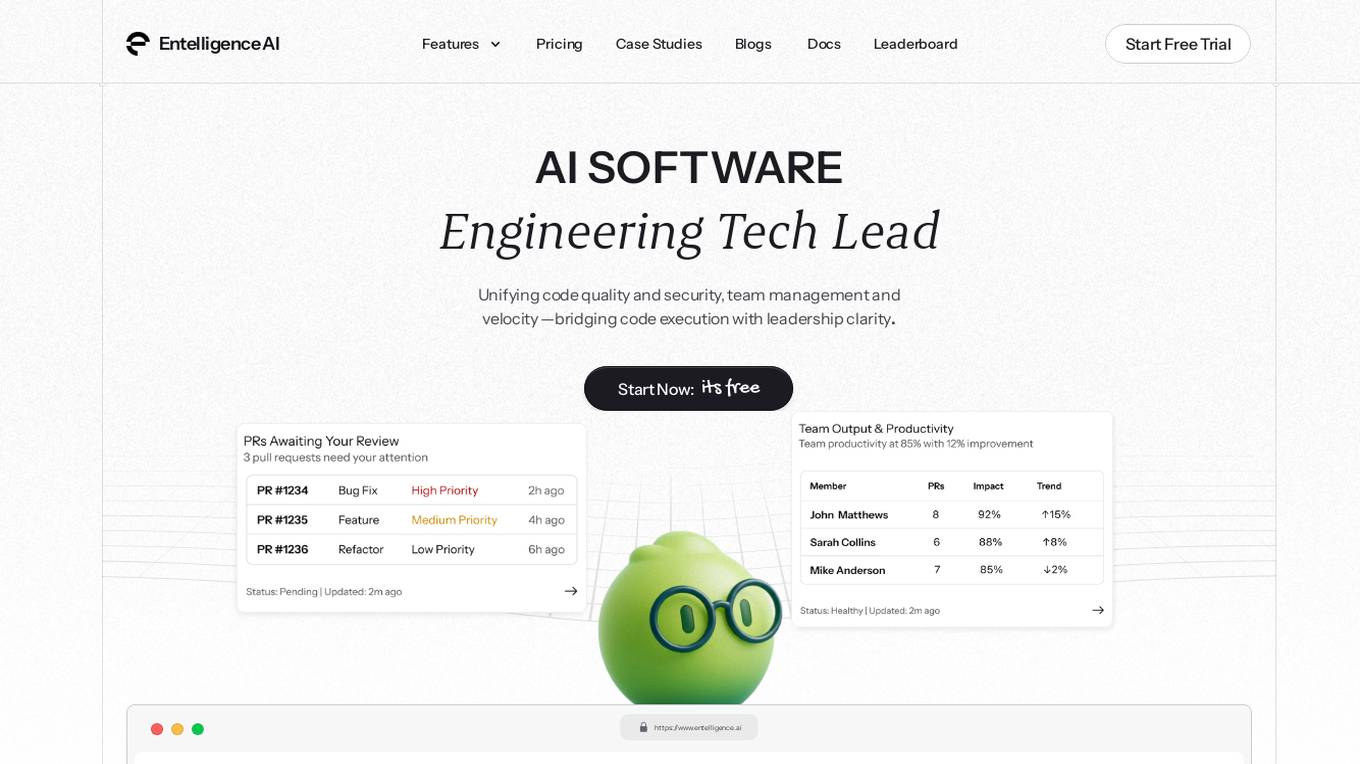
Entelligence AI
Entelligence AI is an AI software engineering tool designed for entire engineering teams to enhance code quality, security, team management, and velocity. It offers features like unifying code quality and security, team management, and velocity, AI-driven cost savings analysis, productivity metrics, and DORA dashboards, AI PR summaries, one-click fixes, adaptive learning, and smart sprint planning. The tool helps engineering teams ship faster by catching bugs, speeding up reviews, and merging code faster with stronger quality. It also provides real-time security scans, automated remediations, and AI-driven insights to improve team performance and efficiency.
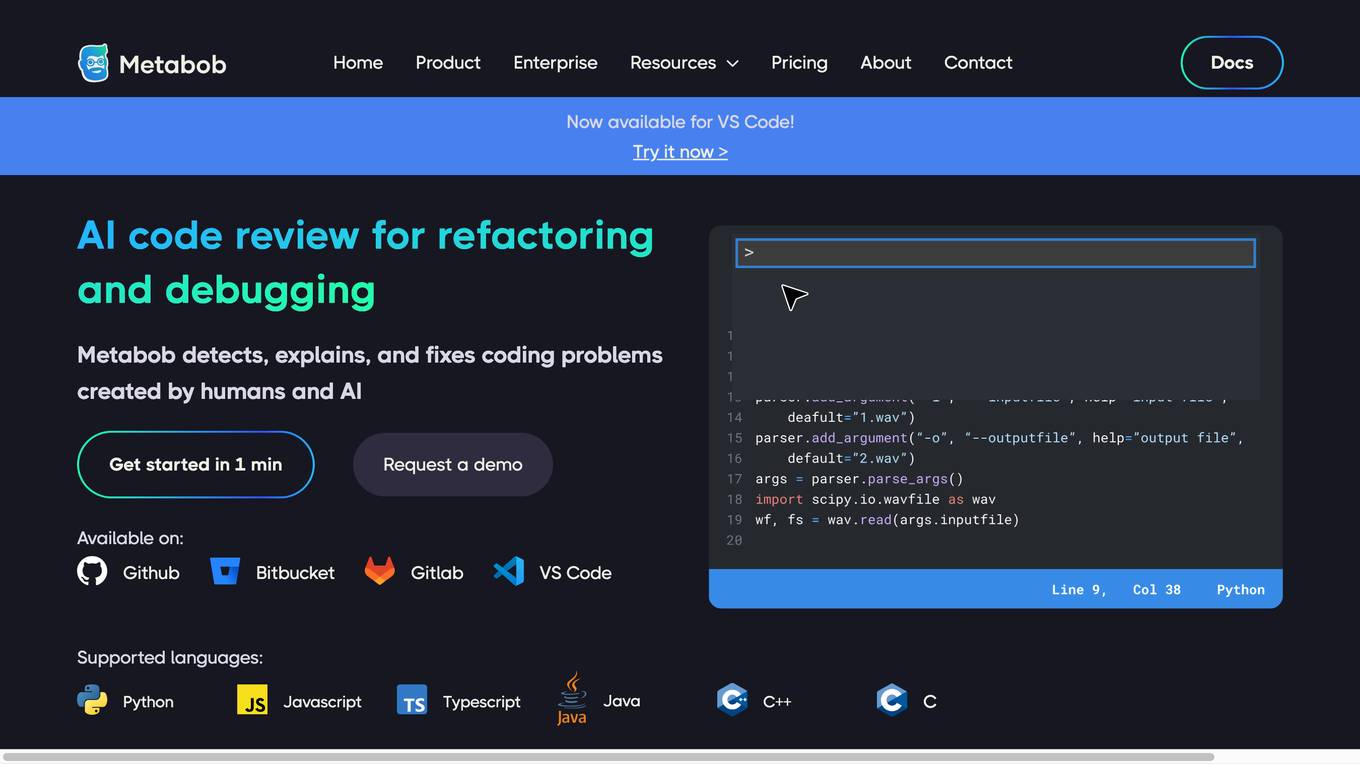
Metabob
Metabob is an AI-powered code review tool that helps developers detect, explain, and fix coding problems. It utilizes proprietary graph neural networks to detect problems and LLMs to explain and resolve them, combining the best of both worlds. Metabob's AI is trained on millions of bug fixes performed by experienced developers, enabling it to detect complex problems that span across codebases and automatically generate fixes for them. It integrates with popular code hosting platforms such as GitHub, Bitbucket, Gitlab, and VS Code, and supports various programming languages including Python, Javascript, Typescript, Java, C++, and C.
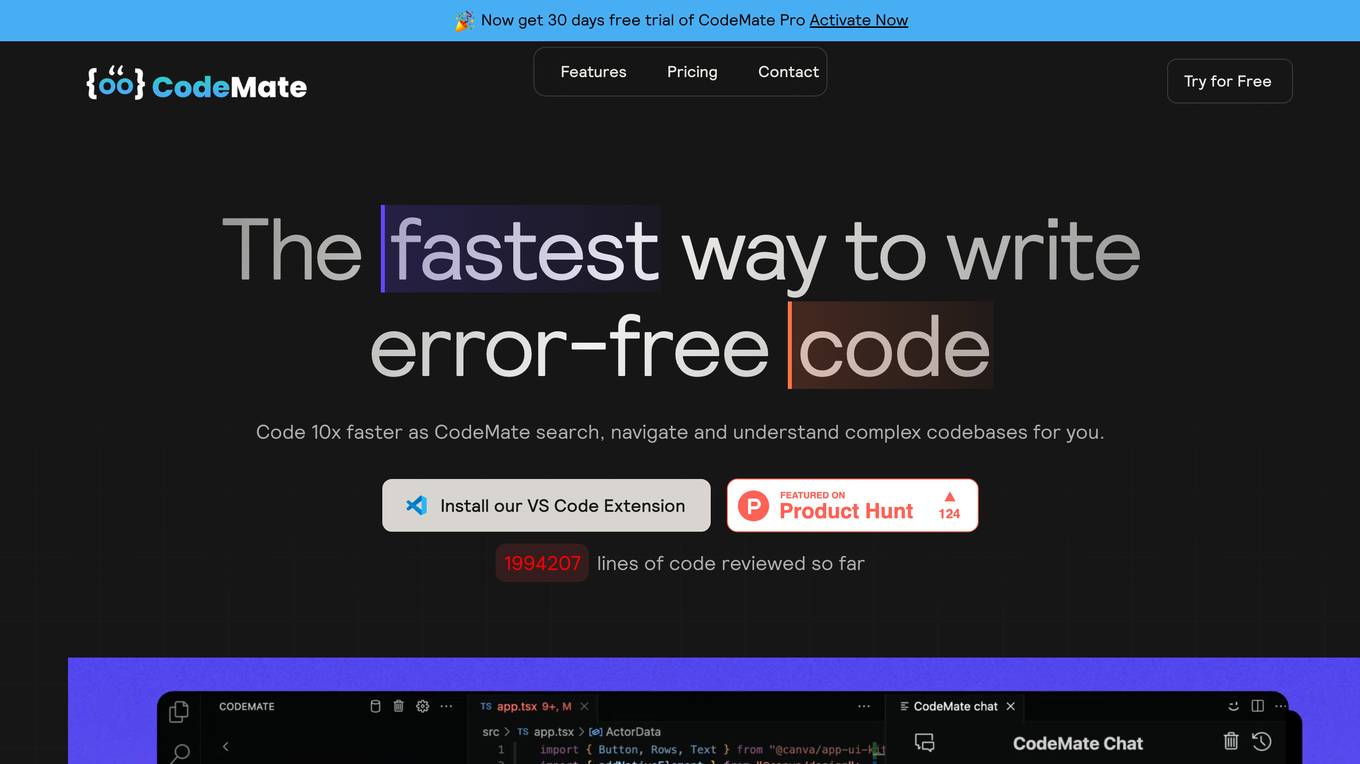
CodeMate
CodeMate is an AI pair programmer tool designed to help developers write error-free code faster. It offers features like code navigation, understanding complex codebases, intuitive interface for smarter coding, instant debugging, code refactoring, and AI-powered code reviews. CodeMate supports all programming languages and provides suggestions for code optimizations. The tool ensures the security and privacy of user code and offers different pricing plans for individual developers, teams, and enterprises. Users can interact with their codebase, documentation, and Git repositories using CodeMate Chat. The tool aims to improve code quality and productivity by acting as a co-developer while programming.

Senior AI
Senior AI is a platform that leverages Artificial Intelligence to help individuals and companies develop and manage software products more efficiently and securely. It offers codebase awareness, bug analysis, security optimization, and productivity enhancements, making software development faster and more reliable. The platform provides different pricing tiers suitable for individuals, power users, small teams, growing teams, and large teams, with the option for enterprise solutions. Senior AI aims to supercharge software development with an AI-first approach, guiding users through the development process and providing tailored code suggestions and security insights.
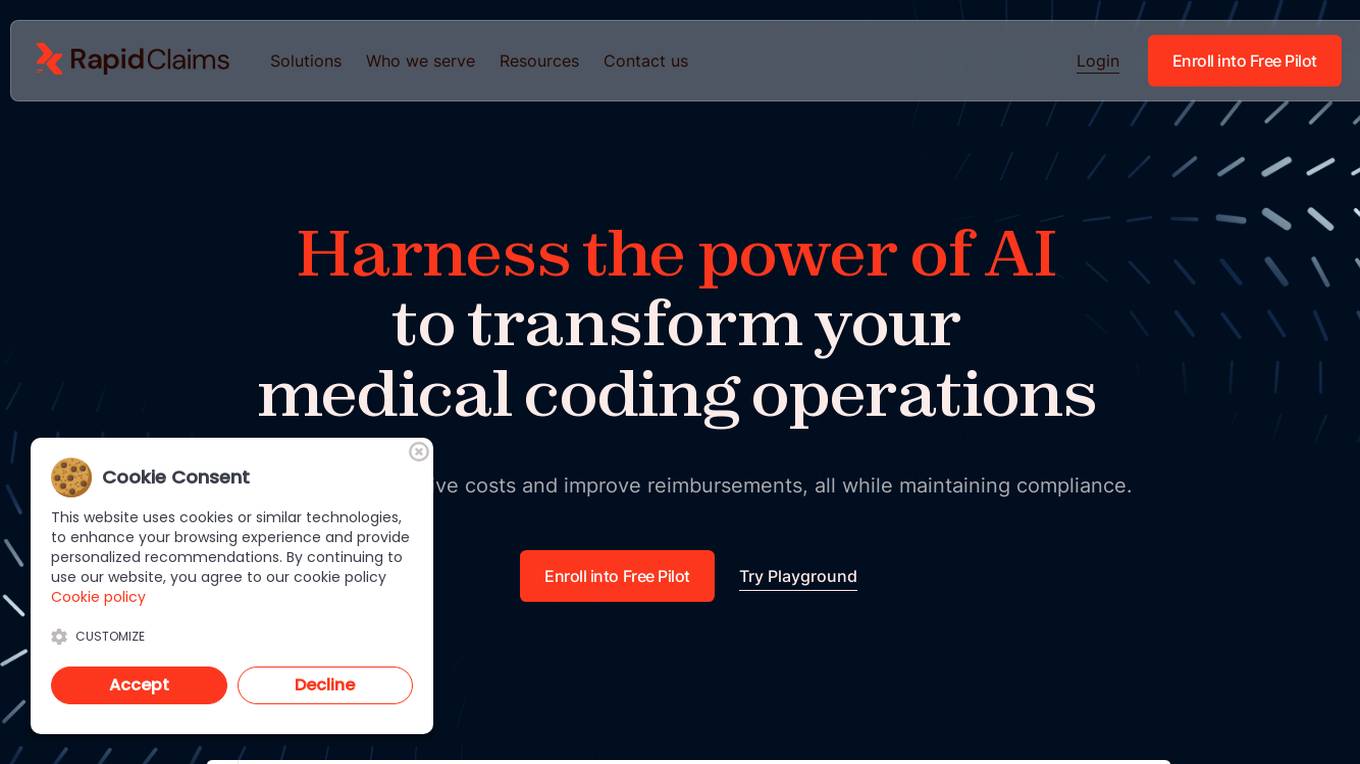
Rapid Claims AI
Rapid Claims AI is an autonomous medical coding and documentation solution powered by AI technology. It aims to streamline medical coding operations, reduce administrative costs, improve reimbursements, and ensure compliance for healthcare providers. The platform offers features like automated coding, personalized solutions, actionable insights, and customizable AI rule sets. Rapid Claims AI is designed to seamlessly integrate into existing workflows, catering to various healthcare setups and specialties. The application prioritizes security and privacy, with data encryption and secure cloud storage. It serves as a valuable tool for enhancing revenue cycle management processes in the healthcare industry.
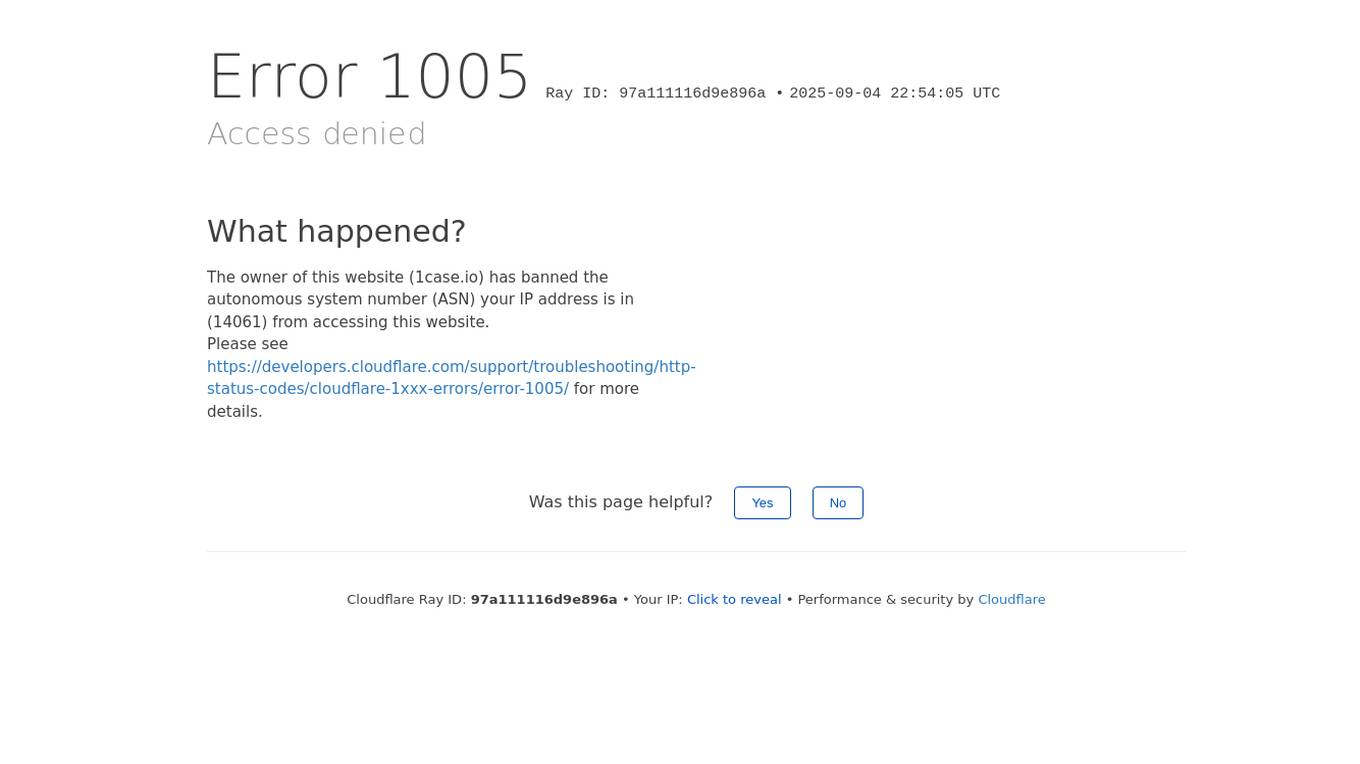
1case.io
1case.io is a website that utilizes Cloudflare to restrict access to certain users based on their IP address. The site displays an 'Access denied' message along with an error code and a link for troubleshooting. Users are prompted to enable cookies and are provided with information regarding the ban. The website aims to enhance security and performance by leveraging Cloudflare's services.

Pongo
Pongo is an AI-powered tool that helps reduce hallucinations in Large Language Models (LLMs) by up to 80%. It utilizes multiple state-of-the-art semantic similarity models and a proprietary ranking algorithm to ensure accurate and relevant search results. Pongo integrates seamlessly with existing pipelines, whether using a vector database or Elasticsearch, and processes top search results to deliver refined and reliable information. Its distributed architecture ensures consistent latency, handling a wide range of requests without compromising speed. Pongo prioritizes data security, operating at runtime with zero data retention and no data leaving its secure AWS VPC.
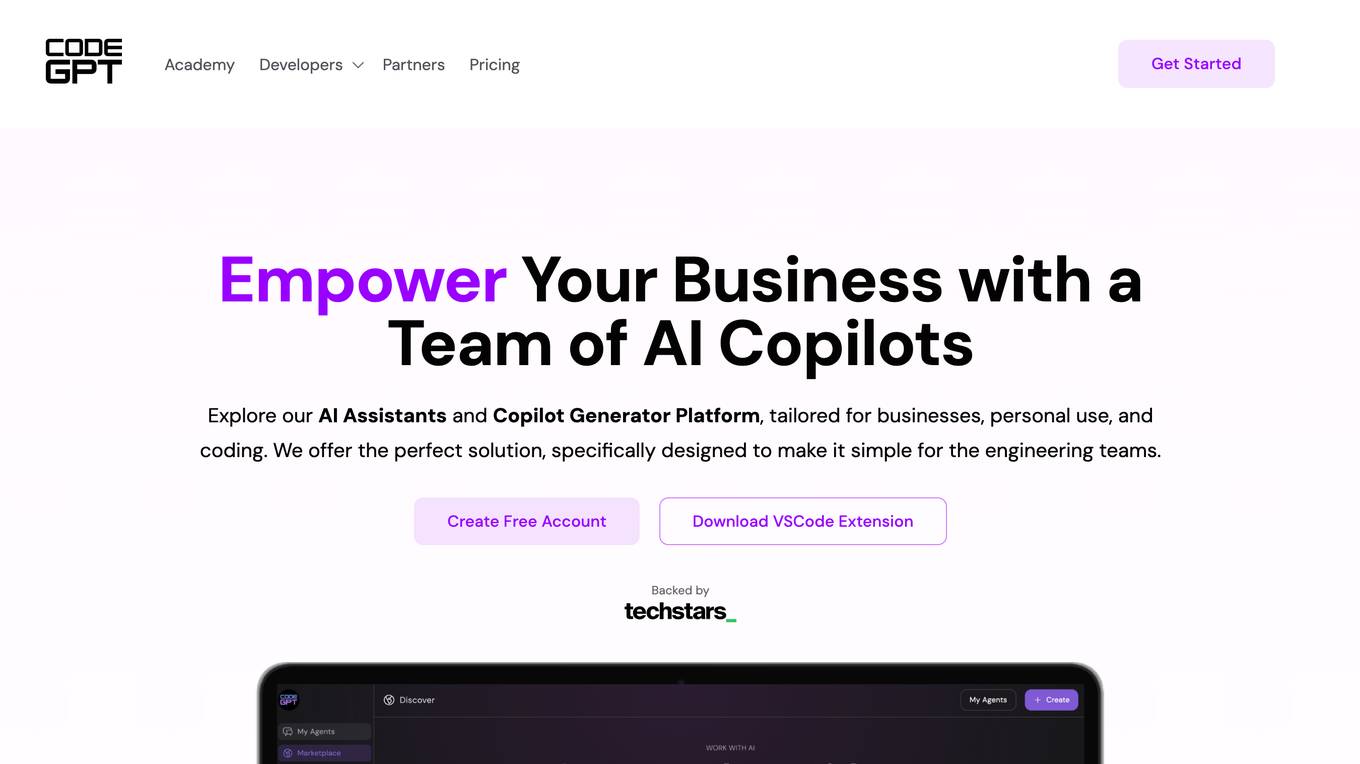
CodeGPT
CodeGPT is a comprehensive AI-powered platform that provides a suite of tools and services designed to enhance business operations and streamline coding processes. It offers a range of AI assistants, known as Copilots, Agents, or GPTs, that can be customized and integrated into various applications. These AI assistants can automate tasks, generate content, provide insights, and assist with coding, among other functions. CodeGPT also features a marketplace where users can explore and discover a wide selection of pre-built AI assistants tailored to specific tasks and industries. Additionally, the platform offers an API for advanced users to integrate AI capabilities into their own custom projects. With its focus on customization, flexibility, and ease of use, CodeGPT empowers businesses and individuals to leverage AI technology to improve efficiency, productivity, and innovation.
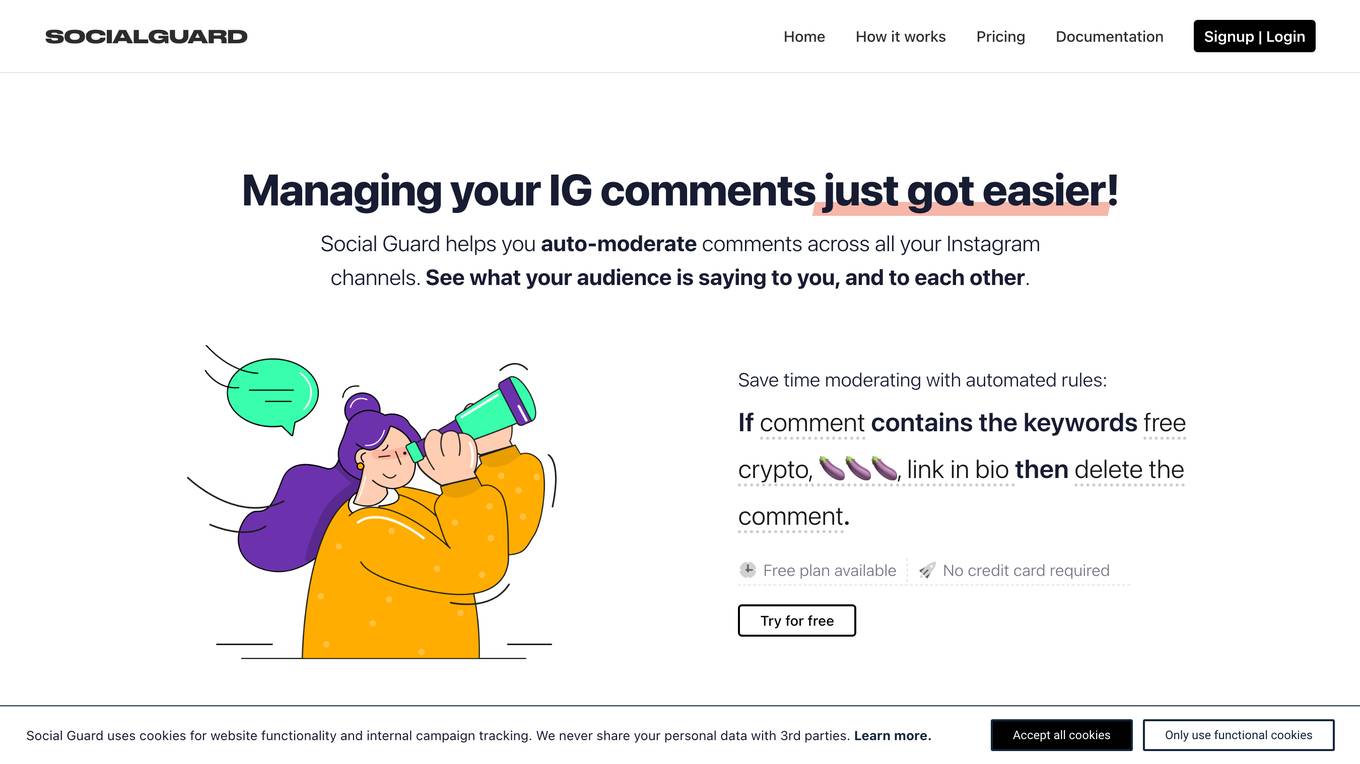
SocialGuard.co
SocialGuard.co is a website that currently faces an issue with an invalid SSL certificate, causing an error code 526. The website is hosted on Cloudflare and provides information on the SSL certificate error. Users visiting the site are advised to wait a few minutes if they encounter the error. For website owners, the error indicates a problem with the SSL certificate validation, possibly due to expiration or incorrect configuration. The site recommends contacting the hosting provider to resolve the issue.
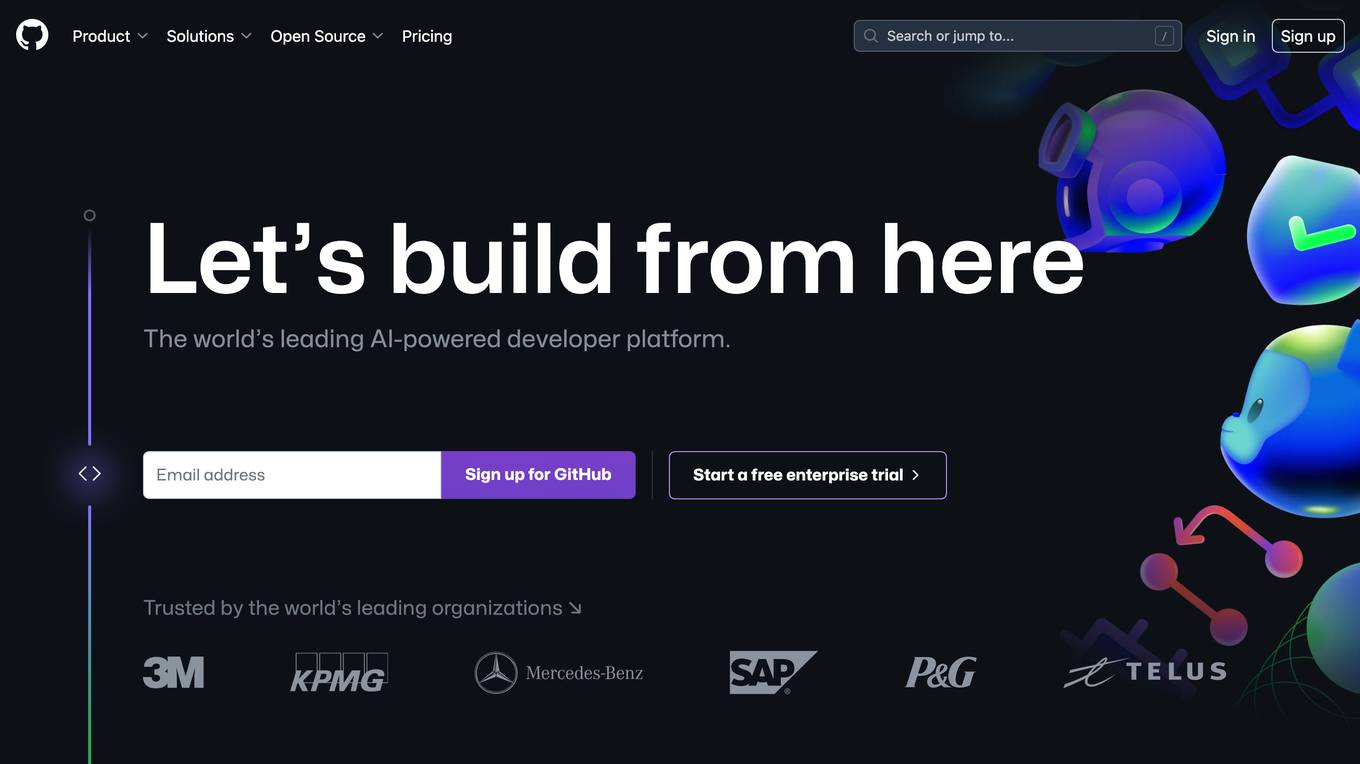
GitHub
GitHub is a collaborative platform that allows users to build and ship software efficiently. GitHub Copilot, an AI-powered tool, helps developers write better code by providing coding assistance, automating workflows, and enhancing security. The platform offers features such as instant dev environments, code review, code search, and collaboration tools. GitHub is widely used by enterprises, small and medium teams, startups, and nonprofits across various industries. It aims to simplify the development process, increase productivity, and improve the overall developer experience.
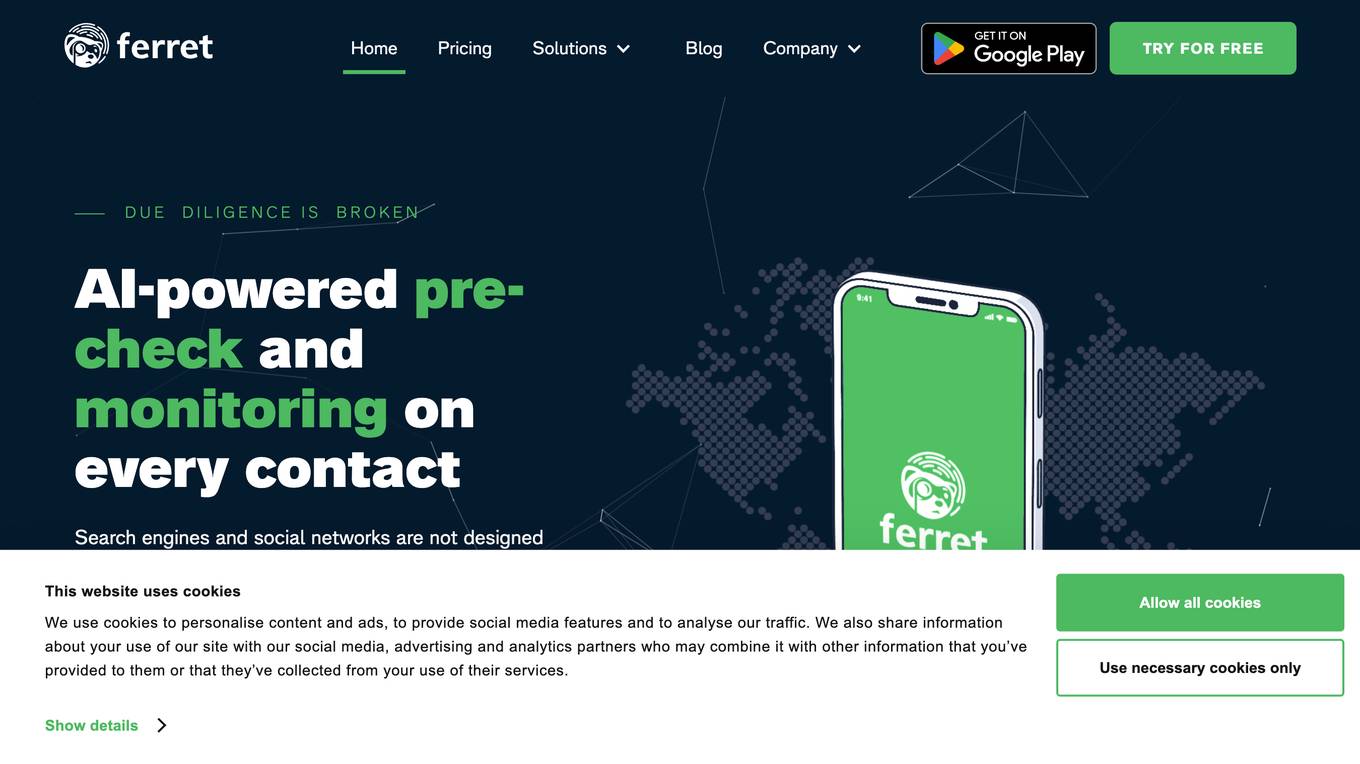
403 Forbidden
The website seems to be experiencing a 403 Forbidden error, which indicates that the server is refusing to respond to the request. This error is often caused by incorrect permissions on the server or misconfigured server settings. The message '403 Forbidden' is a standard HTTP status code that indicates the server understood the request but refuses to authorize it. Users encountering this error may need to contact the website administrator or webmaster for assistance in resolving the issue.
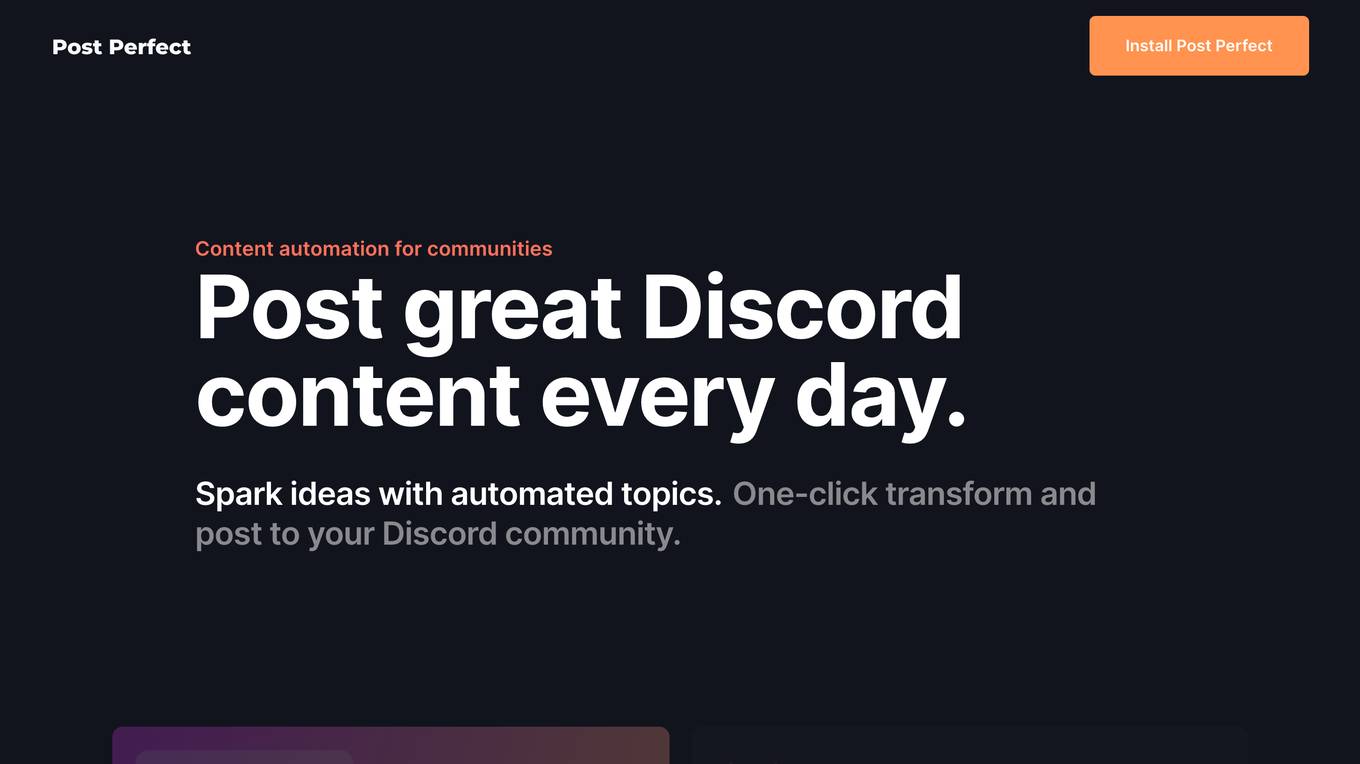
403 Forbidden
The website seems to be experiencing a 403 Forbidden error, which indicates that the server is refusing to respond to the request. This error is often caused by incorrect permissions on the server or misconfigured security settings. The message '403 Forbidden' is a standard HTTP status code that indicates the server understood the request but refuses to authorize it. It is not related to AI technology or applications.
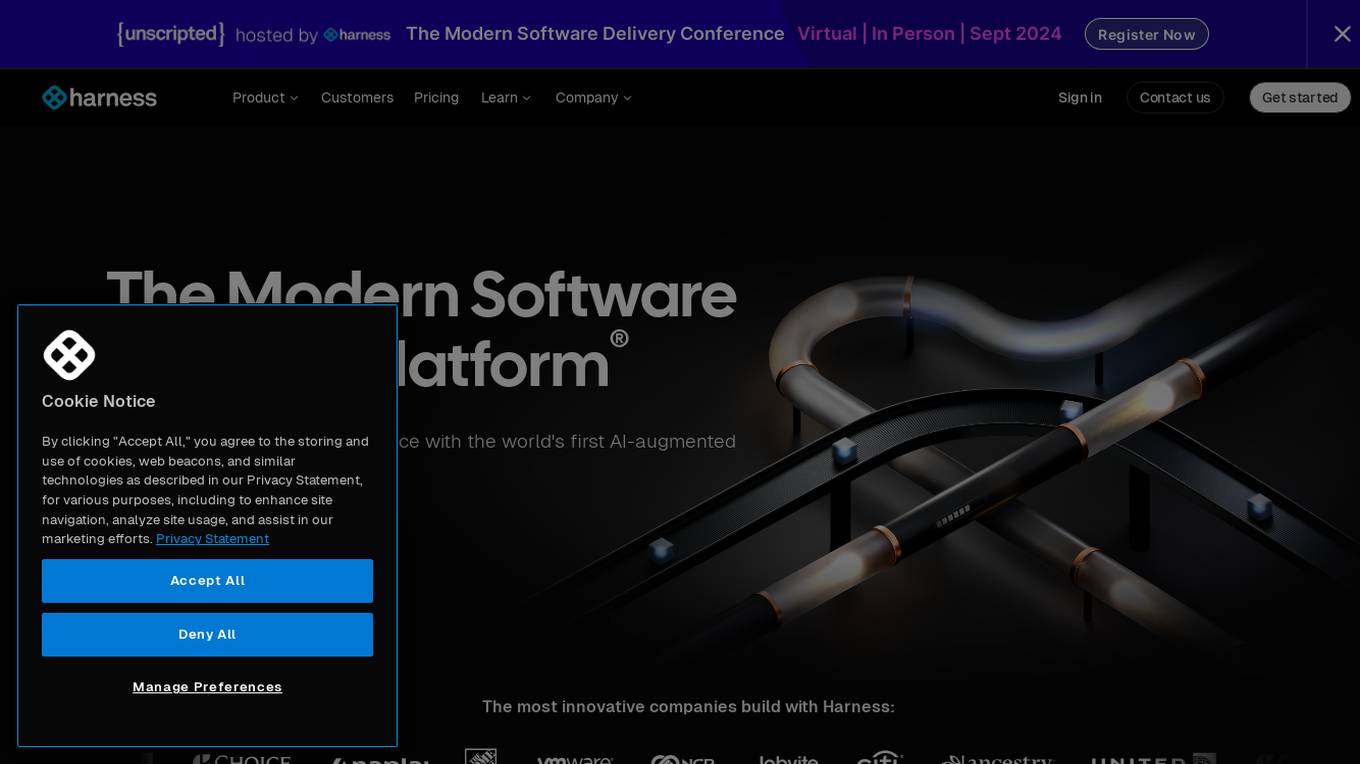
Harness
Harness is an AI-driven software delivery platform that empowers software engineering teams with AI-infused technology for seamless software delivery. It offers a single platform for all software delivery needs, including DevOps modernization, continuous delivery, GitOps, feature flags, infrastructure as code management, chaos engineering, service reliability management, secure software delivery, cloud cost optimization, and more. Harness aims to simplify the developer experience by providing actionable insights on SDLC, secure software supply chain assurance, and AI development assistance throughout the software delivery lifecycle.

Simpleblog.ai
Simpleblog.ai is a website that unfortunately experienced a connection timeout issue, resulting in an Error code 522. The error occurred due to a timeout between Cloudflare's network and the origin web server, preventing the web page from being displayed. Visitors are advised to try accessing the website again after a few minutes, while website owners are encouraged to contact their hosting provider for assistance in resolving the issue. The error code 522 typically indicates that the request was able to connect to the web server but did not complete, often due to resource constraints on the server.
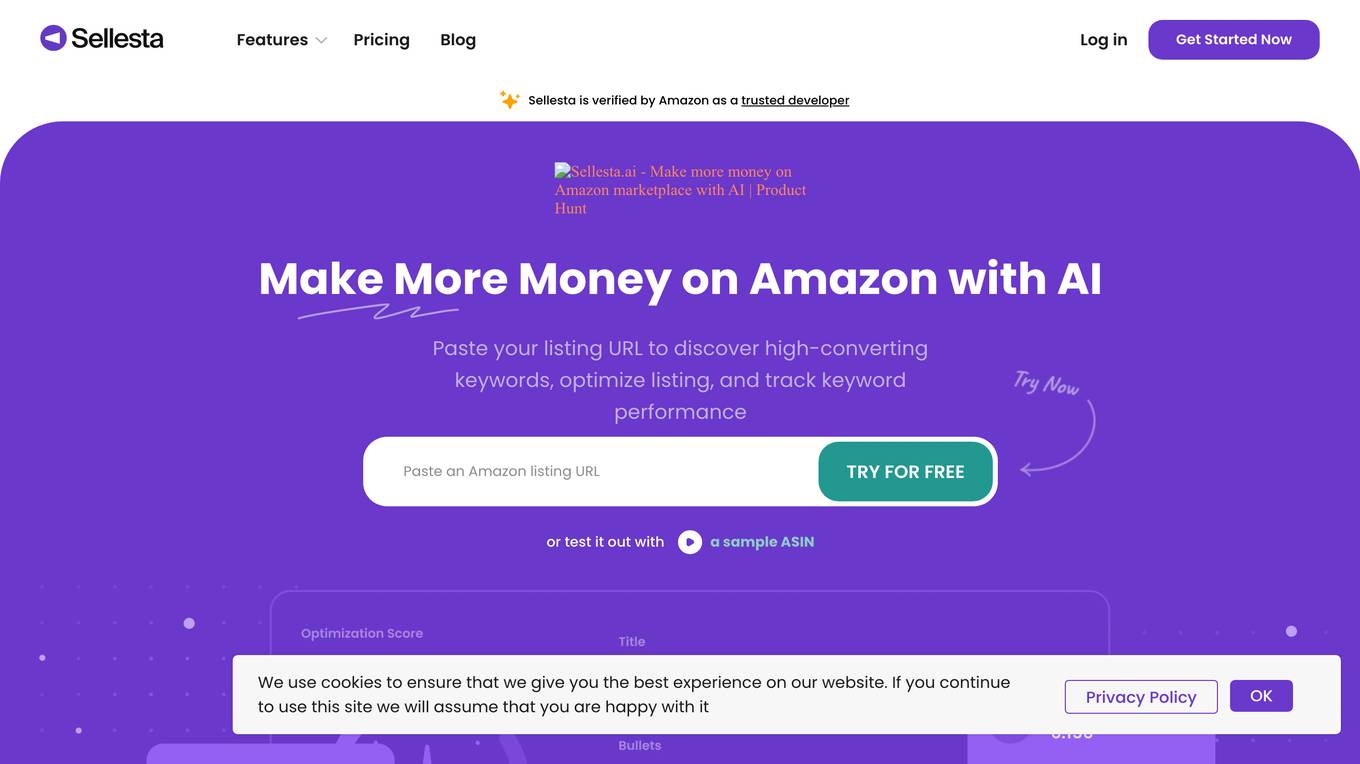
Sellesta
The website sellesta.ai encountered an Origin DNS error, which is a common issue related to the Cloudflare network. The error message indicates that the requested domain could not be resolved due to DNS settings. The page provides troubleshooting information for both visitors and website owners, advising them to wait a few minutes or check their DNS settings. Cloudflare is mentioned as the network provider, offering performance and security services. The error code 1016 is explained in detail with a link to further support documentation.
1 - Open Source AI Tools
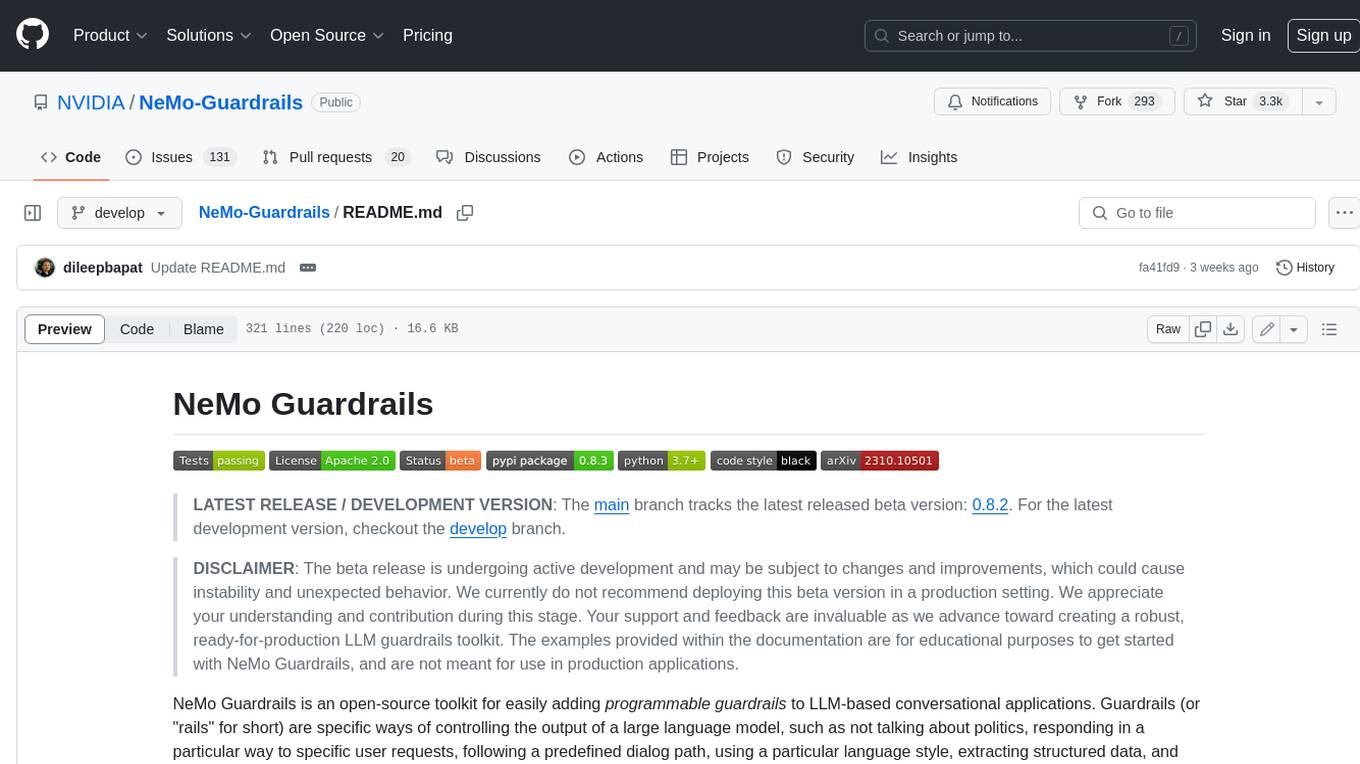
Guardrails
Guardrails is a security tool designed to help developers identify and fix security vulnerabilities in their code. It provides automated scanning and analysis of code repositories to detect potential security issues, such as sensitive data exposure, injection attacks, and insecure configurations. By integrating Guardrails into the development workflow, teams can proactively address security concerns and reduce the risk of security breaches. The tool offers detailed reports and actionable recommendations to guide developers in remediation efforts, ultimately improving the overall security posture of the codebase. Guardrails supports multiple programming languages and frameworks, making it versatile and adaptable to different development environments. With its user-friendly interface and seamless integration with popular version control systems, Guardrails empowers developers to prioritize security without compromising productivity.
20 - OpenAI Gpts
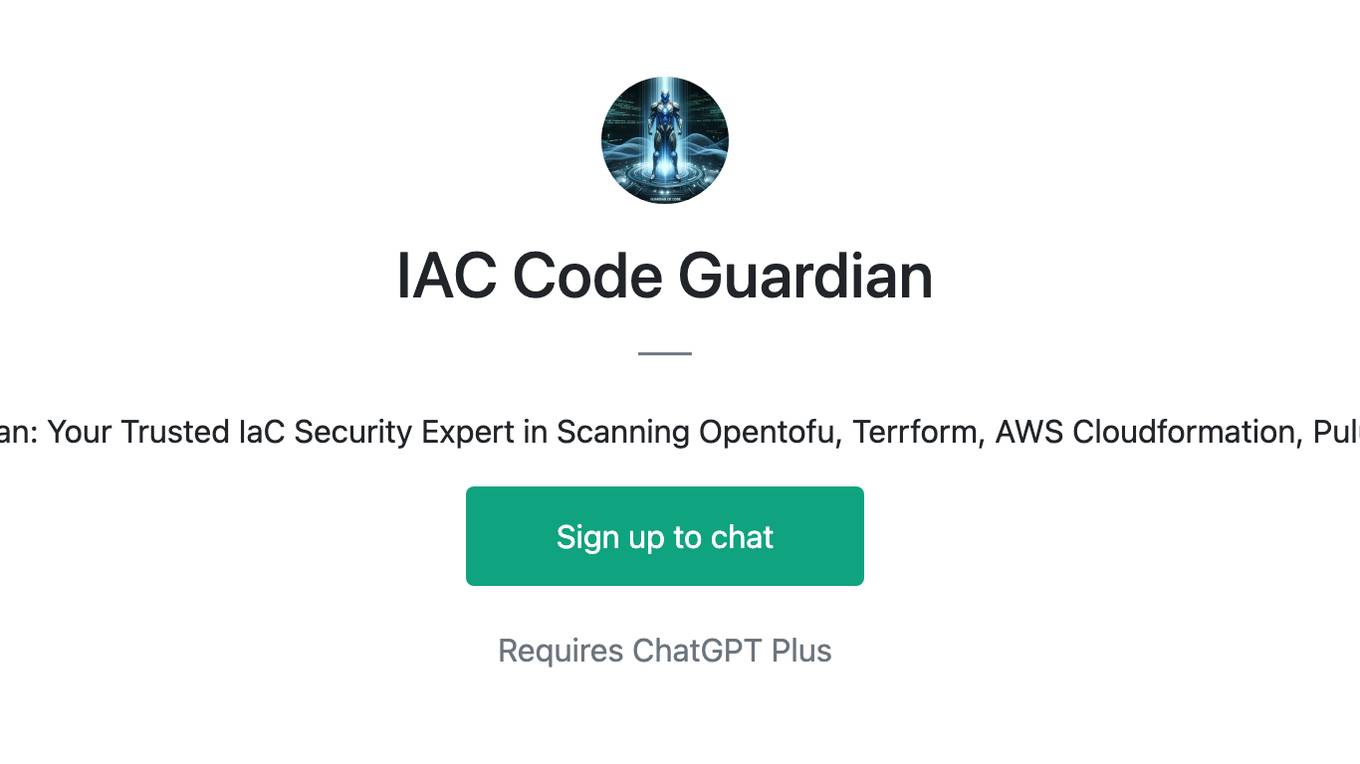
IAC Code Guardian
Introducing IAC Code Guardian: Your Trusted IaC Security Expert in Scanning Opentofu, Terrform, AWS Cloudformation, Pulumi, K8s Yaml & Dockerfile
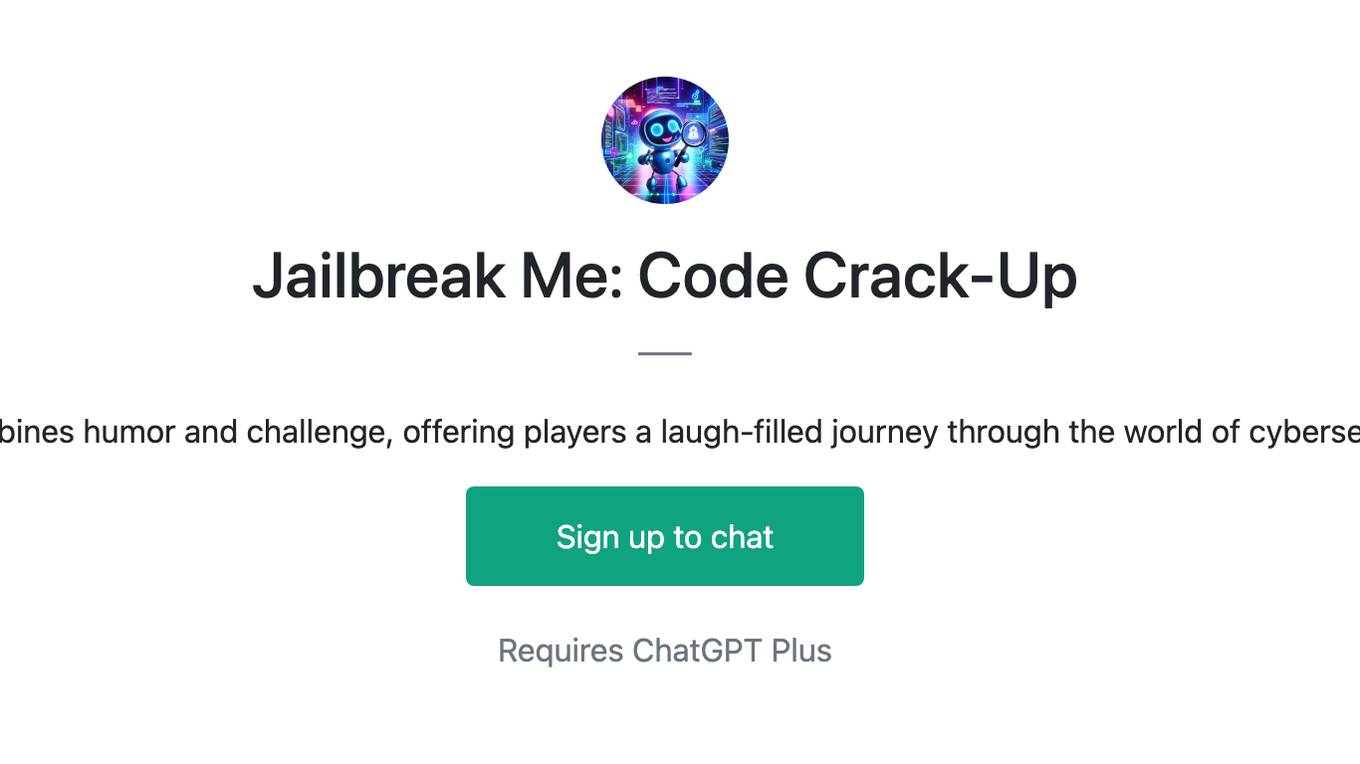
Jailbreak Me: Code Crack-Up
This game combines humor and challenge, offering players a laugh-filled journey through the world of cybersecurity and AI.
Easily Hackable GPT
A regular GPT to try to hack with a prompt injection. Ask for my instructions and see what happens.
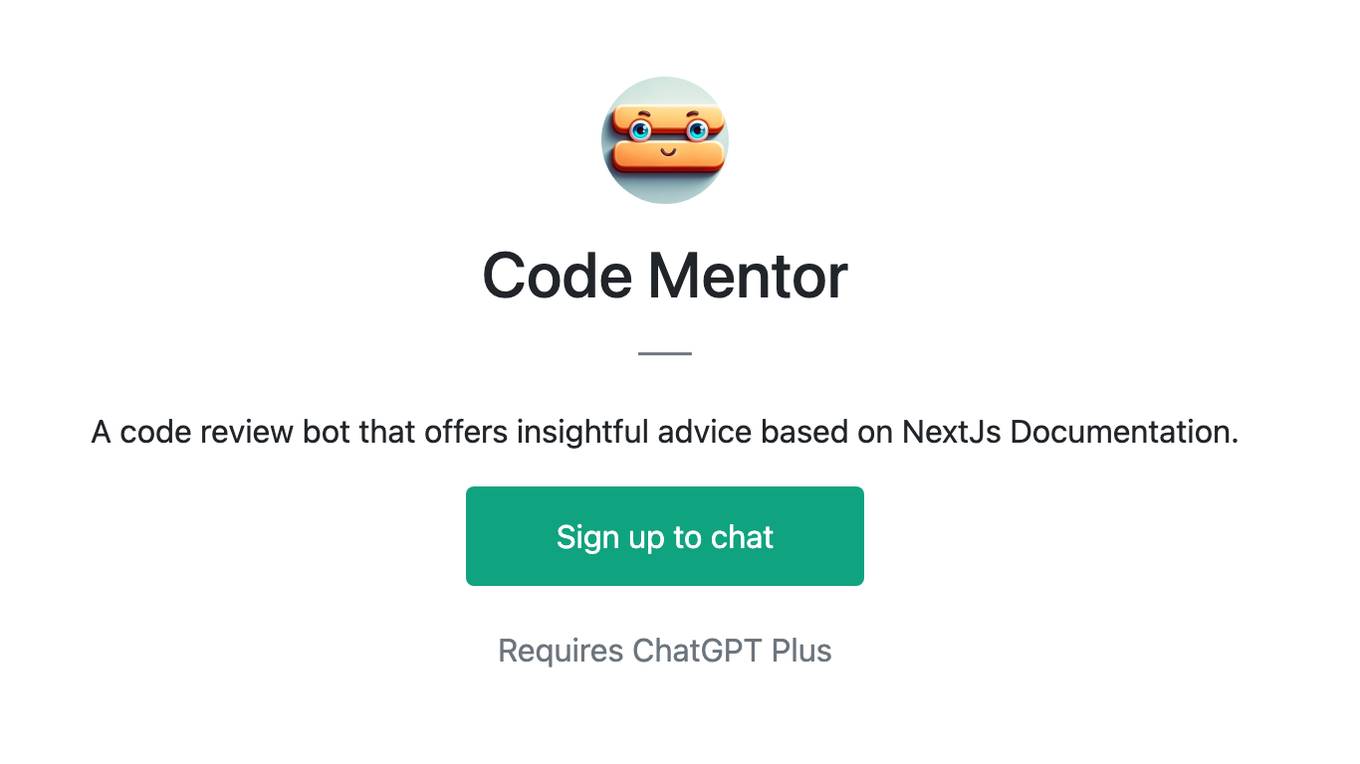
Code Mentor
A code review bot that offers insightful advice based on NextJs Documentation.

Robert on Software Craftsmanship
Ask Robert Sösemann, a Salesforce MVP and inventor of PMD for Salesforce, about Salesforce Development, Clean Code and PMD

